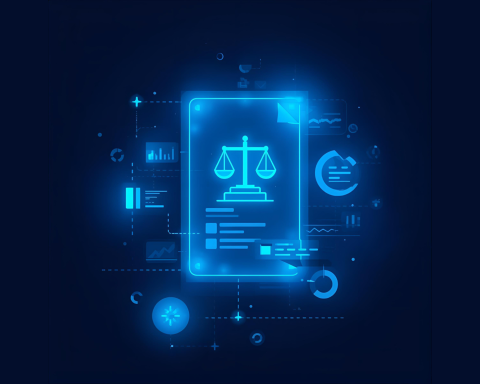AI isn’t the threat, the legal industry’s slowness to adapt is. Loyalty to the legal profession’s traditional system is slowing the legal market’s response to challenges posed by AI. Historically, the legal profession has been slow to invest in “experimental,” “non-essential” investments, like legal technology, and instead rely upon conventional methods for generating profit. However, throughout history, it’s been shown that companies need to reinvent and adapt as technology changes.
Now, law firms’ hesitance to prioritize innovation is affecting their profitability. According to a Wolters Kluwer survey, “legal organizations that fully leverage technology outperform organizations that do not.” In fact, the survey revealed that law firms that did not prioritize tech adoption were 17% less profitable than technology-leading firms. With the rise of AI and its numerous applications to the legal space, law firms are faced with many new challenges: staffing uncertainties, profitability constraints within the billable hour system, regulation requirements, etc. AI is positioned to dramatically alter the legal industry, but the industry must be willing to promptly adapt to these changes if they want to compete in the market.
To adapt to the rise of AI, law firms can take several proactive steps. Here are some ways in which law firms can adapt and harness its potential:
1. Stay Informed
Law firms should actively stay informed about AI advancements, industry trends, and best practices. This includes monitoring developments in AI technology, attending conferences and seminars, and engaging with legal tech communities. By staying informed, firms can identify opportunities to leverage AI in their practice areas. Some popular resources for legal tech updates include LawSites, Law Technology Today, Legaltech Hub, and 3 Geeks and a Law Blog.
2. Identify Use Cases
Law firms should assess their workflows and identify areas where AI can bring efficiency and value. For example, tasks such as contract analysis, due diligence, legal research, and document review can be automated using AI tools. By understanding their specific needs and pain points, firms can select the most suitable AI applications to integrate into their operations.
3. Collaborate with Legal Tech Providers
Collaborating with legal tech providers and AI vendors can help law firms understand the available AI solutions and their potential benefits. Engaging in discussions and piloting projects with these providers can help firms evaluate the effectiveness and compatibility of AI tools within their existing systems and workflows.
4. Invest in AI-Specialized Talent
Law firms can hire or train professionals with expertise in AI and data analytics. These individuals can help bridge the gap between legal expertise and technical knowledge, enabling effective implementation and management of AI tools. However, it is critical to invest in a team of specialized talent rather than relying on an individual to create a cohesive infrastructure on their own. Building a multidisciplinary team that combines legal knowledge with AI proficiency is essential for successful AI adoption.
5. Develop AI Governance Policies
Law firms should establish AI governance policies to address ethical, legal, and regulatory considerations associated with these technologies. These policies should cover issues like data privacy, bias mitigation, transparency, and compliance. Developing guidelines and procedures for responsible AI use ensures that firms mitigate potential risks and maintain client trust.
6. Implement Collaborative AI
Rather than viewing AI as a replacement for lawyers, law firms can implement collaborative AI tools. This involves using AI tools to augment human capabilities and enhance efficiency. Lawyers can leverage AI for tasks like legal research, data analysis, and document review, enabling them to focus on higher-value strategic work and client counseling.
7. Continuous Education & Training
Law firms should invest in continuous training programs to upskill their workforce in AI-related knowledge and skills. This includes providing resources for lawyers and staff to understand technologies, their implications, and how to effectively utilize tools in their daily work. Regular training sessions and workshops can help foster a culture of AI adoption and innovation within the firm. A popular source for education is the ABA’s CLE Marketplace Search, where you can find AI-centered CLEs.
About Courtroom Insight
Courtroom Insight offers the leading knowledge management solution that enables law firms, insurance companies, and other legal organizations to capture, share and analyze critical information about legal professionals, such as expert witnesses, judges, arbitrators, and attorneys. Learn more at: https://www.courtroominsight.com or https://www.linkedin.com/company/courtroom-insight/.




